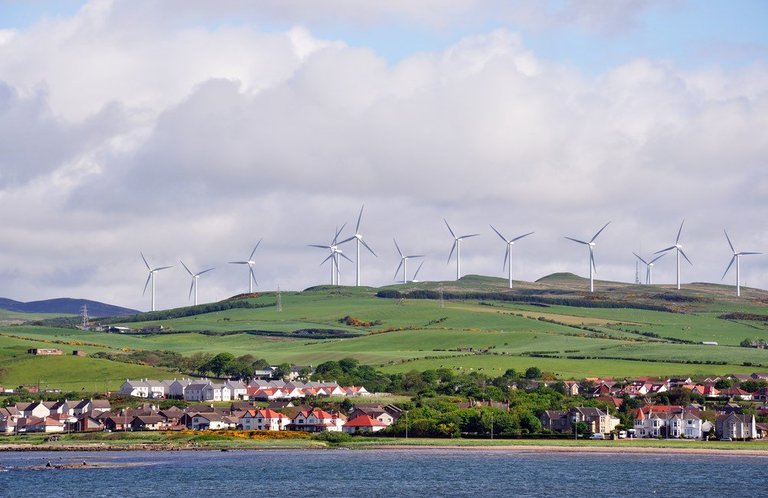From July to September 2019, British renewable energy sources provided the electricity grid with more energy than their fossil counterparts. An ephemeral but fundamental objective. 29.5 TWh vs. 29.1 TWh: this is how British renewable electricity beats gas, coal and oil.
The National Grid, a company that manages the British supply network, announced in June that 2019 was the year in which in the United Kingdom renewable electricity would exceed that produced by fossil fuels. A historic milestone that the country is ready to celebrate.
According to data published by Carbon Brief, in the third quarter of this year the renewable energies of the United Kingdom (combined wind, photovoltaic, biomass and hydroelectric) generated 29.5 TWh of electricity compared to 29.1 TWh contributed by fossil sources . And although the gap may seem small and only temporary overcoming, the event must be considered a milestone in the path of British energy development.
In fact, only 10 years ago, coal and gas had almost absolute control of the electricity sector, with a contribution 10 times greater than today. However, the sudden decline in renewable energy costs, together with an increasingly strong and powerful wind sector, made the difference.
Over the past five years, renewable capacity has tripled, reaching 41.9 GW in the summer of 2018. On the other hand, fossil fuels have lost ground between power plants at the end of their useful life and costs have increased, reducing the accumulated capacity by a third to 41.

Therefore, this news was only a matter of time. The first signs were recorded in the spring when the National Grid announced that the United Kingdom had completed its first week without coal in almost 140 years. Wind power played an important role in the supply of 20% of the electricity used from July to September.
The contribution of biomass was also high, with 12% of the mix, while solar panels provided 6% of electricity. For Kwasi Kwarteng, Minister of Energy and Industrial Strategy, the new green record is “another milestone on the road to the end of our contribution to climate change by 2050. Since 1990 we have reduced emissions by 40%, while the economy grew in two thirds - Kwarteng added - Now, with an even greater number of offshore wind projects under development and at record low prices, we hope to go even further and do it even faster in the coming years.
This is excellent news :D
For sure
Hi, thanks for the post! I have included it in my daily Science and technology digest, and you'll receive a 10% share of that post's rewards.
Thanks a lot